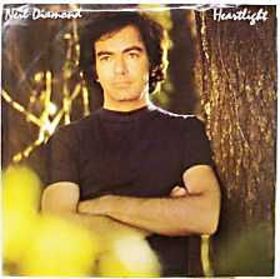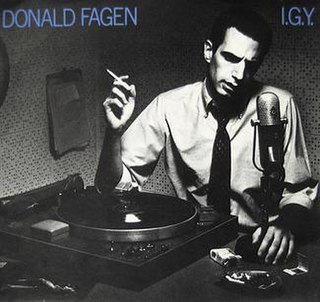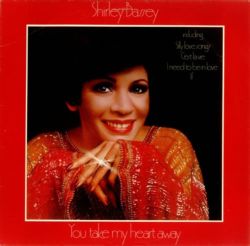Related Research Articles

Carole Bayer Sager is an American lyricist, singer, songwriter, and painter.

Kim Carnes is an American singer and songwriter born and raised in Los Angeles. She began her career as a songwriter in the 1960s, writing for other artists while performing in local clubs and working as a session background singer with the famed Water Sisters. After she signed her first publishing deal with Jimmy Bowen, she released her debut album Rest on Me in 1971. Carnes' self-titled second album primarily contained self-penned songs, including her first charting single "You're a Part of Me", which reached No. 35 on the Billboard Adult Contemporary chart in 1975. In the following year, Carnes released Sailin', which featured "Love Comes from Unexpected Places". The song won the American Song Festival and the award for Best Composition at the Tokyo Song Festival in 1976.

James Edward Ingram was an American singer, songwriter and record producer. He was a two-time Grammy Award-winner and a two-time Academy Award nominee for Best Original Song. After beginning his career in 1973, Ingram charted eight top 40 hits on the U.S. Billboard Hot 100 chart from the early 1980s until the early 1990s, as well as thirteen top 40 hits on the Hot R&B/Hip-Hop Songs chart. In addition, he charted 20 hits on the Adult Contemporary chart. He had two number-one singles on the Hot 100: the first, a duet with fellow R&B artist Patti Austin, 1982's "Baby, Come to Me" topped the U.S. pop chart in 1983; "I Don't Have the Heart", which became his second number-one in 1990 was his only number-one as a solo artist.

Rough Diamonds is the sixth studio album by the English rock band Bad Company. The album was released in August 1982. Rough Diamonds, like its predecessor, Desolation Angels, was recorded at Ridge Farm Studio in Surrey, England, in March and April 1981 and engineered by Max Norman.

Bella Donna is the debut solo studio album by American singer and songwriter Stevie Nicks. Released on July 27, 1981, the album reached number one on the US Billboard 200 in September of that year. Bella Donna was awarded platinum status by the Recording Industry Association of America (RIAA) on October 7, 1981, less than three months after its release, and in 1990 was certified quadruple-platinum for four million copies shipped. Bella Donna spent nearly three years on the Billboard 200, from July 1981 to June 1984.

The Kings are a Canadian rock band formed in 1977 in Oakville, Ontario. They are best known for their 1980 song "This Beat Goes On/Switchin' To Glide", which was a hit in the United States and Canada.

"Arthur's Theme (Best That You Can Do)" is a song performed and co-written by American singer-songwriter Christopher Cross, which was the main theme for the 1981 film Arthur starring Dudley Moore and Liza Minnelli. The song won an Oscar for Best Original Song in 1981. In the US, it reached number one on the Billboard Hot 100 and on the Hot Adult Contemporary charts during October 1981, remaining at the top on the Hot 100 for three consecutive weeks. Overseas, it also went to number one on the VG-lista chart in Norway and was a top-ten hit in several other countries. The song became the second and last American number-one hit by Christopher Cross. It was included as a bonus track only on the CD and cassette versions of his second album, Another Page, released in 1983.

"Start Me Up" is a song by the English rock band the Rolling Stones from their 1981 album Tattoo You. Released as the album's lead single, it reached number one on Australian Kent Music Report, number two in Canada, number two on the Billboard Hot 100, number seven on the UK Singles Chart, and the top ten in a handful of European countries north of the Alps.
"Mountain of Love" is a song written by Harold Dorman. Dorman released his version as a single in 1960. It was originally recorded in late 1959 at the Royal Recording Studios in Memphis before the backing vocals were overdubbed. It performed well, spending 19 weeks on the Billboard Hot 100 chart, peaking at No. 21 in May 1960, while reaching No. 7 on the Billboard Hot R&B Sides chart, and No. 25 on Canada's "CHUM Hit Parade". The song was his only top forty hit on the Billboard Hot 100 and was the highest-charting single of his career.
Sometimes Late at Night is the third and last solo album by songwriter Carole Bayer Sager, released in 1981. Singles from the album were Stronger Than Before, and Easy To Love Again. The track co-written with Neil Diamond, On The Way To The Sky, served as the title to his album released a few months later and reached the top 40 as a single in 1982.

"Heartlight" is a song written by Neil Diamond, Carole Bayer Sager and her then-husband, Burt Bacharach, and recorded by Diamond in 1982. It is the first track on Diamond's 1982 album, also titled Heartlight, and reached number five on the Billboard Hot 100, becoming his thirteenth top 10 hit on the chart. It also spent four weeks atop the adult contemporary chart in late 1982, and was the last of his eight #1s on that chart. Reportedly, it was inspired by the 1982 film E.T. the Extra-Terrestrial, and Diamond allegedly settled with MCA/Universal for $25,000, due to its supposedly drawing on the material of the film.

"Workin' Man Blues" is a song written and performed by American country music artist Merle Haggard and The Strangers. It was released in May 1969 as the second single from the album A Portrait of Merle Haggard. The song was released during his early peak and became one of several signature songs during his career.

His 12 Greatest Hits is a compilation album by Neil Diamond, issued in 1974 on the MCA record label. As the title suggests, it contains twelve songs from Neil's catalogue.

Heartlight is the fifteenth studio album by Neil Diamond. It was released in August 1982 on Columbia Records. The album spent 34 weeks on the charts and peaked at #9. For shipments of a million copies it was certified Platinum by the RIAA.

"Midnight Blue" is a song by American singer and songwriter Melissa Manchester, written by herself alongside Carole Bayer Sager and produced by Vini Poncia with an executive production by Richard Perry. It was released in April 1975 as the first single from Manchester's third studio album, Melissa (1975).

"I.G.Y. " is a song written and performed by American songwriter, singer and musician Donald Fagen. It was the first track on his platinum-certified debut solo album The Nightfly, and was released in September 1982 as its first single. It charted within the top 30 on the Billboard Hot 100, Mainstream Rock, R&B Singles and Adult Contemporary charts.

"Don't Cry Out Loud" is a song written in 1976 by Peter Allen with lyricist Carole Bayer Sager that is best known as a hit single for Melissa Manchester in the US and for Elkie Brooks in the UK.

You Take My Heart Away is the 22nd studio album from Shirley Bassey, released in 1977 on the United Artists Records label. The album peaked at #34 in the UK album chart. The tracks recorded for this album are contemporary pop, soft rock songs, dating mainly from the early to mid-1970s. The title track "You Take My Heart Away", originally performed by Bill Conti, was featured in the 1976 film Rocky. Other covers versions included are: "This One's for You" from Barry Manilow, "Silly Love Songs" from Wings, which had been a #1 hit single on the Billboard Hot 100, "Stargazer" from Neil Diamond. Only one track dates from a previous era: "Can't Help Falling in Love" was recorded by Elvis Presley in 1962.

"Making Love" is a 1982 song written by Burt Bacharach, Bruce Roberts, and Carole Bayer Sager to serve as the theme song for the film of the same name in which, as recorded by Roberta Flack with Bacharach/ Bayer Sager producing, it played under the closing credits: a Top 20 hit single for Flack, "Making Love" was included on the singer's 1982 album release I'm the One.

"Now We're Starting Over Again" is a romantic ballad composed by Michael Masser and lyricist Gerry Goffin first recorded by Dionne Warwick in 1981 as "Now We're Starting Over Again". The song was most successful as a 1989 single release by Natalie Cole.
References
- ↑ "Top Single Picks". Billboard. February 6, 1982. p. 74. Retrieved 2023-01-21.